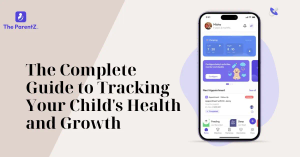The conference room is buzzing with energy as Priya presents her quarterly targets. But she is hardly concentrating on the reports. In the back of her mind, she's calculating ovulation dates. She is wondering if the late nights and career stress are affecting her chances of conception.
But if we talk about career perspective for women, they are rewriting the rules. She's climbing corporate ladders, launching startups, and breaking glass ceilings.
But when it comes to fertility, she often finds herself caught between expectations. There are societal expectations, biological realities, and professional aspirations. Sound familiar? It is the reality for countless working women in India. And it is a pity that ambitious roads of career paths run parallel to the road of family ones. It is a very difficult area to manage.
The intersection of working women's fertility in India deserves understanding. It is free of pressure and judgment.
The Reality of Modern Indian Working Women
Today's Indian workforce tells a compelling story. Women constitute 24% of the workforce. Many are pursuing demanding careers in tech, finance, healthcare, and entrepreneurship. They dream of achieving professional heights. They are often the first women in their families to achieve it. They are not carrying their own dreams, but also the generational hopes of their mothers.
But here's what the statistics don't capture. The 3 AM anxiety about whether career success is coming at the cost of fertility. The guilt of choosing a business trip during a fertile window. Or the exhaustion of managing both boardroom presentations and fertility appointments. These women aren't asking to choose between success and motherhood. They're asking for a roadmap to navigate both.
The Real Connection Between Stress And Fertility
Research shows that chronic stress directly affects reproductive health. Because of deadlines, long commutes, or office pressure, the body is in constant alert. It focuses on immediate survival rather than reproduction. These condition triggers high cortisol levels. These levels further influence hormone balance, disrupt ovulation, and reduce reproductive function.
Indian working women face extra challenges with fertility in India. There are family expectations about having children. Then there are cultural timelines. There is also limited access to quality healthcare, all while managing busy careers. These combined pressures create conditions that can make conception more difficult.
Stress Management That Works in Real Life
1. Focus on What You Can Actually Control
Stop trying to manage everything perfectly. Direct your attention to things within your reach. For example: consistent sleep, good nutrition, and clear work-life boundaries.
Release the need to time everything precisely. Fertility rarely follows exact plans, and accepting this reduces unnecessary pressure.
2. Build Flexibility Into Your Schedule
There can always be some adjustments. Fertility should not always be planned around work commitments. Use tracking apps to learn your patterns without letting them create more stress.
Book medical appointments during calmer work periods. Have honest conversations with your manager about potential medical needs before they arise.
3. Add Brief Recovery Breaks
Effective stress management doesn't need lengthy meditation sessions. Practice five-minute breathing exercises between meetings.
Take calls while walking when possible. Use commute time for gratitude reflection. These short mindfulness moments can substantially reduce stress levels.
4. Eat Well Despite Demanding Hours
Long work days don't mean living on coffee and fast food. Natural, home-made food goes a long way in providing the necessary nutrients to the mother. One can always prepare meals on weekends. Stocking your desk with fertility-supporting snacks.
Drinking enough water can also be beneficial. It is always advisable to work with a nutritionist. He/she should be familiar with your cultural food preferences and fertility goals.
5. Create Strategic Support Systems
Connect with other amazing working women who are going through similar experiences. There are plenty of supportive platforms on social media where you can find communities and workplace groups. Even casual chats with colleagues can offer comfort and helpful advice.
During these times, feeling understood by someone can really make a difference in helping you see the situation more clearly. The people who share both career stress and conception concerns make a significant difference.
Handling Work Relationships
Share Information Thoughtfully
You don't need to discuss your fertility plans with coworkers. But having one trusted colleague or supportive manager can simplify scheduling and logistics. It is also advisable to focus conversations on flexibility needs. It is rather important to keep specific medical details private.
Understand Your Benefits
Learn your company's policies on medical leave, flexible schedules, and maternity support. Many Indian companies increasingly support women's health needs. But you must know what options exist.
Keep Expectations Realistic
Some days you'll leave early for appointments. Other times, working women’s work demands will conflict with fertility plans in India. This doesn't mean you're less dedicated to either priority. It means you're managing real life. Adjust your expectations and help others understand this balance.
The Role of Partners And Family
A working woman’s fertility journey in India shouldn't be a solo expedition. Partners need to understand the emotional and physical demands that come with the role. This might mean sharing household responsibilities differently. Attending medical appointments together or simply providing emotional support during stressful work periods.
Consider setting gentle but firm boundaries about discussions. Particularly, about pregnancy timelines with extended family. While their concern comes from love. External pressure rarely helps with either career performance or conception.
When to Seek Professional Help
Don't wait until stress becomes overwhelming to seek support. Consider consulting healthcare professionals. If you're experiencing persistent anxiety, sleep disturbances, or irregular cycles. If you've been trying to conceive for over a year (or six months if you're over 35).
Mental health support, fertility counseling, or stress management therapy can be valuable investments. This therapy will help in both your career longevity and fertility journey.
Technology As Your Ally
Leverage technology to reduce stress, not increase it. Use apps for cycle tracking, meal planning, and meditation.
Set up automated reminders for vitamins or appointments. But remember, these tools should simplify your life. It is not there to add another layer of pressure to perform perfectly.
Final Thoughts: Moving Forward With Compassion
The journey of balancing working women's fertility and career goals in India isn't linear. It isn't the same for every woman. What works for your colleague might not work for you, and that's normal. The goal isn't perfection. It's finding an approach that honors both your professional aspirations and personal desires, all the while maintaining your well-being.
Remember, you're part of a generation redefining what it means to be a working woman in India. There's no perfect playbook because you're writing it as you go. Be patient with yourself. Celebrate small wins. Remember that both career success and fertility journeys happen in their own time.
Your worth isn't measured by how you juggle everything. But by the courage you show in pursuing both your professional dreams and personal goals. That balance might look different each day, and that's not okay. It's real life.
The path forward involves embracing flexibility, seeking support when needed. This is where our website, TheParentZ.com, comes in handy. It's filled with helpful resources about ovulation, family life, and pre-conception meals and lifestyle. You can also download TheParentZ App, a well-designed companion that simplifies monitoring your child's health and supports you throughout parenting.
References:





Be the first one to comment on this story.